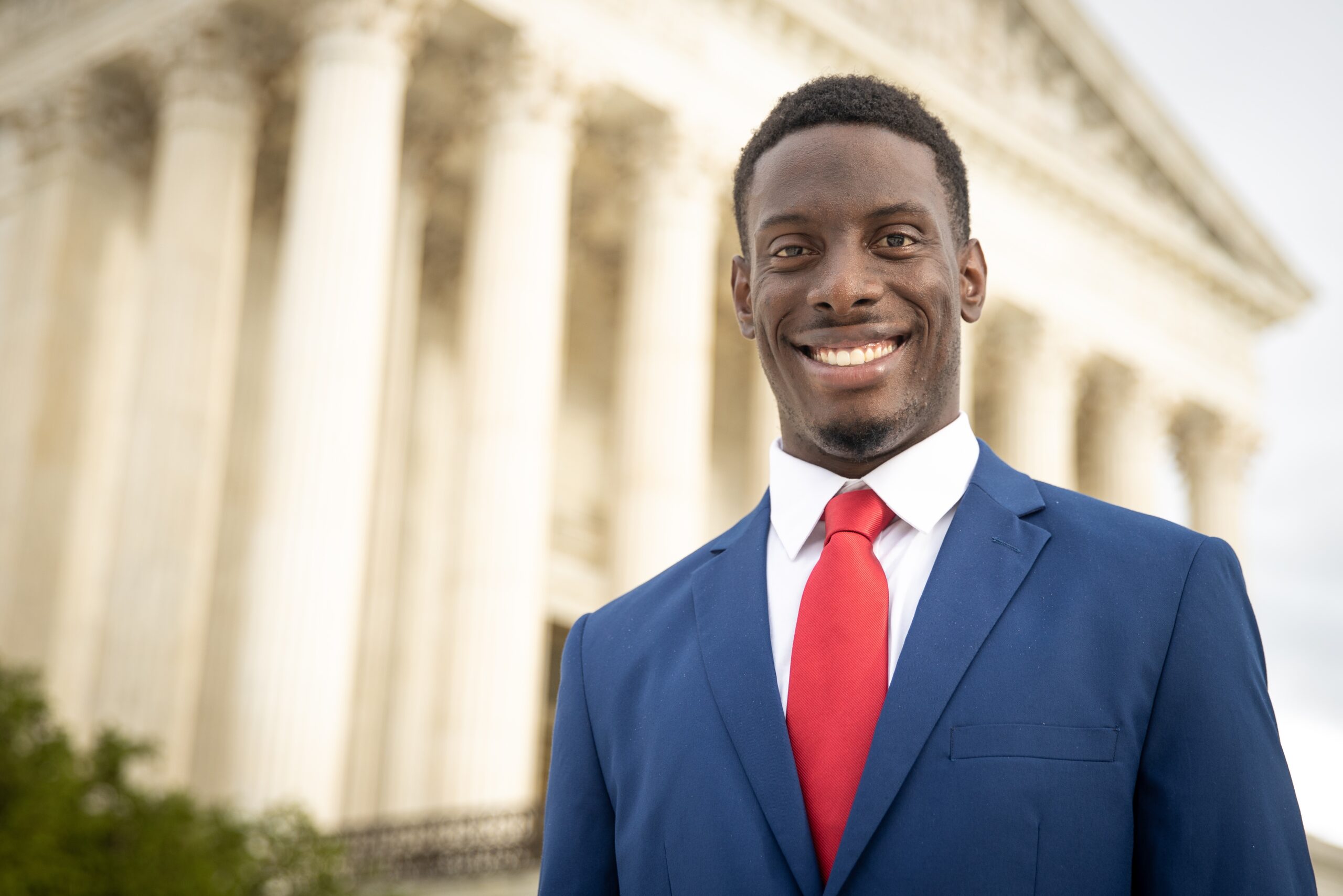Alliance Defending Freedom attorneys filed the lawsuit, Uzuegbunam v. Preczewski, to challenge the college’s enforcement of policies restricting student expression. After being sued, the college argued that the First Amendment did not protect the students’ religious speech. The college later amended its unconstitutional speech policies but did nothing to rectify its mistreatment of the students, and lower courts declined to do anything about it.
“As the diverse groups who submitted briefs in this case agree, courts should hold government officials accountable when they violate First Amendment freedoms. The government is supposed to protect those freedoms, not take them away,” said ADF General Counsel Kristen Waggoner, who will argue the case before the Supreme Court. “People from a wide variety of viewpoints support our clients because they realize the threat to our constitutionally protected freedoms doesn’t stop with free speech rights or one college campus. They all agree that government officials should not get a free pass for violating constitutional rights on campus and elsewhere. When these officials trample those rights but face no consequences for their abuse, it tells the victim that his rights don’t matter and emboldens the government to engage in future violations.”
In 2016, college officials stopped student Chike Uzuegbunam not once, but twice, from peacefully sharing his Christian faith with fellow students in a public area of the college’s Lawrenceville, Georgia, campus. First, officials required Uzuegbunam to get advance permission to use one of two tiny speech zones that were open less than 10% of the week and made up far less than 1% of the campus—the equivalent of a piece of paper on a football field. So Uzuegbunam obtained permission and reserved a time. But when he began sharing his faith in a speech zone, two police officers stopped him, told him someone complained about his speech, and demanded his ID, which they took back to their patrol car. The officers then said if Uzuegbunam continued to share his faith publicly, he would face discipline. Uzuegbunam stopped speaking, and another student did not speak at all after seeing how officials treated Uzuegbunam.
Two federal courts, including the U.S. Court of Appeals for the 11th Circuit, declined to address whether the college violated the students’ First Amendment rights. They said that constitutional violations are not worth addressing after officials change their policies unless the violations caused a financial injury. Most federal courts would have still issued a ruling. Like the opening brief that ADF attorneys representing Uzuegbunam recently filed with the Supreme Court, the friend-of-the-court briefs argue that a final judicial decision is necessary to prevent future misconduct, ensure that government officials are held accountable for actual legal violations, and vindicate priceless freedoms.
As a cross-ideological brief filed by the American Civil Liberties Union, Americans for Prosperity Foundation, Americans United for Separation of Church and State, and Institute for Justice states, “civil-rights plaintiffs in myriad constitutional contexts, and of all political persuasions and beliefs, share one common thread: they have suffered real harms that transcend easy price tags…. The Eleventh Circuit’s outlier rule…would enable governmental actors to evade accountability for their unconstitutional policies.”
“A plaintiff ordinarily suffers a judicially cognizable injury-in-fact when his personal legal rights are infringed, regardless of whether there are consequential harms that flow from the invasion that can be proven and quantified. In fact, abridgements of the freedom of speech, as petitioners allege here, are paradigmatic [constitutional] injuries,” the United States through the Department of Justice explains in its brief, adding that the Constitution “does not permit the defendant to avoid adjudication of the lawfulness of its past conduct if it is not willing to provide the plaintiff with the legally authorized redress for the injury caused by that conduct.”
“Religion Clause violations rarely produce actual damages and often stem from easily mootable laws. Taking away from citizens the only remedy available in many such cases jeopardizes the rule of law itself…,” the American Humanist Association wrote in its brief. “Now is not the time to tell citizens their First Amendment rights do not matter. Now is the time to instill confidence in an anxious America and celebrate a constitutional heritage strong enough to unite the likes of the AHA and ADF.”
- Pronunciation guide: Chike Uzuegbunam (CHEE’-kay Oo-zah-BUN’-um), Preczewski (Preh-SHEV’-skee)
Friend-of-the-court briefs filed with U.S. Supreme Court
- American Civil Liberties Union, Americans for Prosperity Foundation, Americans United for Separation of Church and State, and Institute for Justice
- American Humanist Association
- Becket Fund for Religious Liberty
- CatholicVote.org Education Fund
- Child Evangelism Fellowship
- Christian Legal Society
- Council on American-Islamic Relations
- Foundation for Individual Rights in Education and Cato Institute
- Foundation for Moral Law
- Frederick Douglass Foundation
- General Conference of Seventh-Day Adventists and Pacific Press Publishing Association
- Institute for Free Speech
- Islam & Religious Freedom Action Team of the Religious Freedom Institute
- Jewish Coalition for Religious Liberty
- Justice and Freedom Fund, Students for Life of America, Ratio Christi, Young America’s Foundation, and Turning Point USA
- National Right to Work Legal Defense Foundation
- Pacific Legal Foundation; Delaney Wysingle, Rentberry, Inc.; Luis Ramirez; Michael Jackson; Tory Smith; and Jillian Ostrewich
- Public Citizen
- Rutherford Institute
- United States
- United States Conference of Catholic Bishops, National Association of Evangelicals, and Ethics and Religious Liberty Commission
- Young Americans for Liberty
